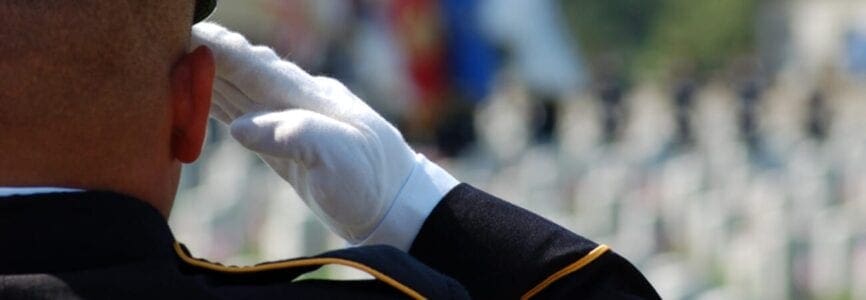Bioethics Forum Essay
The VA Crisis is Fundamentally an Ethics Crisis
The crisis and failure of caregiving that have engulfed the Veterans Health Administration cannot be solved with increased resources or even by hiring more doctors and nurses. Additional resources are critical and necessary—but they are not a sufficient long-term and comprehensive solution to a problem that has been recognized by many as cultural and fundamentally ethical.
Two newspaper articles summarize the problem, citing the findings of a White House review of the Veterans Health Administration by Rob Nabors, President Obama’s deputy chief of staff, which characterizes the institutional culture as “corrosive” and concludes, “The VHA leadership structure is marked by a lack of responsiveness and an inability to effectively manage or communicate to employees or veterans.” According to The New York Times this culture “has led to poor management, a history of retaliation toward employees, cumbersome and outdated technology, and a shortage of doctors and nurses and physical space to treat patients.” The Wall Street Journal points to “a ‘corrosive culture’ that degraded the timely delivery of care and requires a restructuring to improve transparency and accountability.”
Doing the right thing—in other words, taking ethics seriously—has proved to be difficult for the VA (as it has for many large organizations) or worse, irrelevant to quality care. I know this from first-hand experience as the former hospital ethicist of the Philadelphia Veterans Affairs Medical Center (PVAMC) and as founder and first chair of PVAMC Institutional Ethics Committee. Simply put, “ethics quality” could not be measured with validated measurement tools, and therefore could not be valued as an essential part of health care quality. Ethicsper sein the larger context of high-quality care performance appears to be seen as having no clear individual or organizational payoff.
Yet, unlike other health care institutions, the VA publicly recognized that it had an “ethics quality gap” problem and it established a multimillion dollar initiative, called Integrated Ethics, to address it. It seems reasonable to conclude that this initiative did not help prevent the current system-wide ethics meltdown and scandals. VA leaders and staff may now be at a loss on what to do next. A brief history may help us understand why.
The 1990s saw the VA outperforming most hospitals in quality health care and patient safety. Standardized and innovative programs were introduced, including a sophisticated integrated health information system and a framework for using quality measurement tools, a paperless, electronic medical record system for instant communication among providers across the country, and a state-of-the-art system to reduce medical errors. By 2000, the VA had emerged as a leader in quality care and at the forefront of academic excellence in specialized research, education, and clinical programs in geriatrics, spinal cord injury, chronic obstructive pulmonary disease, infectious disease, prosthetics, rehabilitation, post-traumatic stress disorder, and substance abuse.
Ironically, the very programs that made it possible for the VA to outpace other health care institutions in quality care, efficiency, and accountability also seem to have contributed to ethics failure in actual performance. The VA’s focus on quantifiable performance measures and accountability took a life of its own and helped foster the creation of a culture where ethics, integrity, and responsibility were simply overlooked or perceived as an impediment to achieving quality care. For example, the VA required that doctors see patients within 14 days, making “timeliness,” a measure of performance quality. But when it became impossible to meet that requirement, local managers and administrators who were given bonuses for reducing wait-time, falsified the record to make it appeared as if it was met.
The Integrated Ethics Initiative was designed to help prevent ethical lapses and integrate ethics into the mainstream of health care management. Launched in 2008 in the 153 VA Medical Centers and the 21 regional networks, the ethics program came to replace traditional ethics committees, by then viewed as “small tent ethics” obsolete and reactive, and unable to deal with larger environmental, systemic, and cultural problems. A standardized structure and processes for doing ethics in the VA was introduced at three levels: actions and decisions (the day-to-day practice of clinicians and administrators), systems and processes (factors that drive actions and decisions but are not immediately visible), and culture and environment (the value system that informs administrative and financial policies and procedures). Integrated Ethics attempted to change the system and culture to prevent unethical conduct. It was to be, in the words of those who formulated it, “a transformational idea that redefines ethics as it is both practiced and led in the health care arena.”
The standardized structure and processes that were developed to implement the new ethics program quickly became overwhelmed by a vast and rigid organization that valued documentation over action and reduced ethics to compliance and risk management. As a result, ethics in the VA became bureaucratized, an exercise of filling out forms and managerial compliance. This may not explain the current scandal, but it may put it in some context. For example, form-filling and box-checking cannot substitute for lengthy informed consent process. Measurements and performance evaluations do matter, but they cannot be proxies for ethical excellence.
Although not proven effective to date, the VA’s effort to bring ethics into the “organizational mainstream” is laudable. Indeed, the initiative was praised last year in AJOB Primary Research as “groundbreaking in its breadth; its organized systemic approach to ethical practices; and in its broad goals for improving ethics in health care . . .” Changing an ethics culture in any large organization is extraordinarily difficult. I have for 20 years tried to do just that. I have helped make ethics visible and relevant in research, in the day-to-day practice of medicine, and at times in managerial decisions. I did this through personal engagement and continued involvement in diverse educational ethics programs, including ethics consultation, monthly ethics grand rounds, ethics seminars, ethics newsletters, and annual ethics conferences at the cutting edge of science, medicine, and human rights. It is fair to conclude that my efforts in the ethics realm were also ineffective.
The reasons are elusive. Acting VA Secretary Sloan Gibson is correct when he states that “to get toexcellencewe must rely on the integrity, experience, observations, insights, and recommendations of VA’s front-line staff, those who work professionally and compassionately with veterans each and every day, and on the commitment and dedication of leaders, those responsible for a workplace environment in which employees are comfortable highlighting and sharing their successes—and identifying areas which can be improved.”
Organizational ethics is a work in progress. Its success depends on perseverance and leadership commitment and, as Gibson states, on the “moral courage” of each and every VA employee at all levels of the organization who helps improve VA policies and procedures and create a “culture of integrity, commitment, advocacy, and respect.”
To begin with, the VA may benefit from a complete review of its ethics program to identify its strengths and weaknesses and to discontinue or replace programs that do not work. But no shift in ethics culture seems to be possible without the example of VA leaders to take ethics seriously and recognize that piecemeal solutions to ethical problems are useless, wasteful in a bureaucracy, and, more importantly, potentially harmful to American veterans. VA patients deserve to be cared for in a timely and responsible manner by accountable physicians and nurses, in a fair and equitable environment where ethics, integrity, respect, and human dignity are taken seriously.
Evelyne Shuster is the former hospital ethicist at the Philadelphia Veterans Affairs Medical Center and founder and first chair of the Philadelphia VA Institutional Ethics Committee.
Posted by Susan Gilbert at 07/15/2014 05:28:22 PM |












